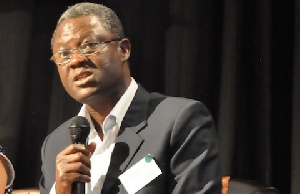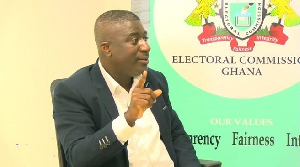The Association of Ghana Industries (AGI) and the Savannah Accelerated Development Authority (SADA) say they are keenly awaiting the Bank of Ghana’s (BoG) decision on their application for the establishment of an industrial bank to support Small and Medium Scale Enterprises (SMEs).
The AGI and the Savannah Accelerated Development Authority (SADA) have announced their intention to establish a bank solely to facilitate credit to SMEs for accelerated development of the Savannah Ecological Zone.
“The AGI has applied for a banking licence and is expecting response from the Bank of Ghana in the coming months. The proposed Industrial Bank will go a long way in harnessing the potential of the savannah ecological zone to provide jobs and business opportunities for people in the area,” Mr. James Asare-Adjei, President of the AGI, said at the Northern Regional Annual General Meeting of the Association held in Tamale.
Establishment of the industrial bank will ensure expansion and sustainability of small-scale businesses and help reduce the country’s unemployment rate, he said.
He noted that the AGI and SADA have a unique opportunity to accelerate industrial development in the savannah ecological zone with the establishment of an industrial bank.
Charles Abugre, the Chief Executive Officer of SADA, last week said the proposed bank would have a seed capital of at least US$100million to finance developmental needs of the savannah area.
“The purpose is to set up a financing institution that is able to help change the SADA zone’s economy by dealing with infrastructural gaps quickly. The area has the worst roads etc., but has huge potential that has to be tapped. For example, there are opportunities for large-scale commercial farming powered by irrigation; turning the Volta Lake into major container transport and others,” he said.
According to the Authority, the African Development Bank, ECOWAS Bank for Investment, and the International Fund for Agriculture and Development have expressed interest in SADA’s development bank.
The proposed financing vehicle is envisaged as an independent financial institution to focus on development projects and programmes to enhance the emergence of an economically strong and industrialised Northern Savannah Ecological Zone (NSEZ).
The NSEZ, which makes up about 51 percent of the country’s total land area, comprises the three Northern regions of Ghana: namely, Upper East, Upper West and the Northern Region, and stretches to include districts contiguous to the Northern Region that are located north of Brong-Ahafo and north of the Volta Region.
Since SADA’s establishment, the biggest chunk of cash to finance its projects has come from government -- and Mr. Abugre says that approach can no longer be sustained, explaining that it is prudent for the authority to seek other sustainable means of financing its projects.
“When you are looking at long-term economic development -- changing the structure of the economy -- you cannot finance that from commercial banks as such funds are usually beyond them, or borrowing from them is very expensive,” he explained.
Mr. Sulley Adam, Board Chairman of SADA, reiterated the commitment of SADA to deepening its collaboration with the AGI for building strong and relevant industries.
He said SADA has developed a five-year strategic plan to help achieve its core mandate, and collaborating with the AGI is necessary for attaining the set objectives.
He said government and other agencies are doing their best for the local industries, but it is up to local industries to also scale-up their activities to meet demands of the market
“If your products are well-packaged and branded, they will attract the attention of investors and buyers,” he said.
Business News of Wednesday, 11 November 2015
Source: B&FT

















